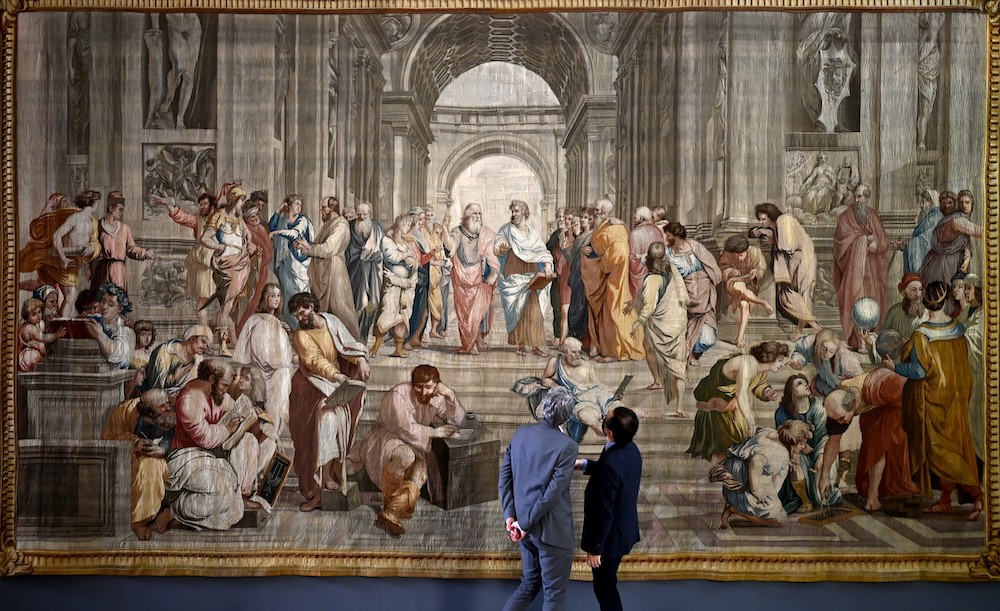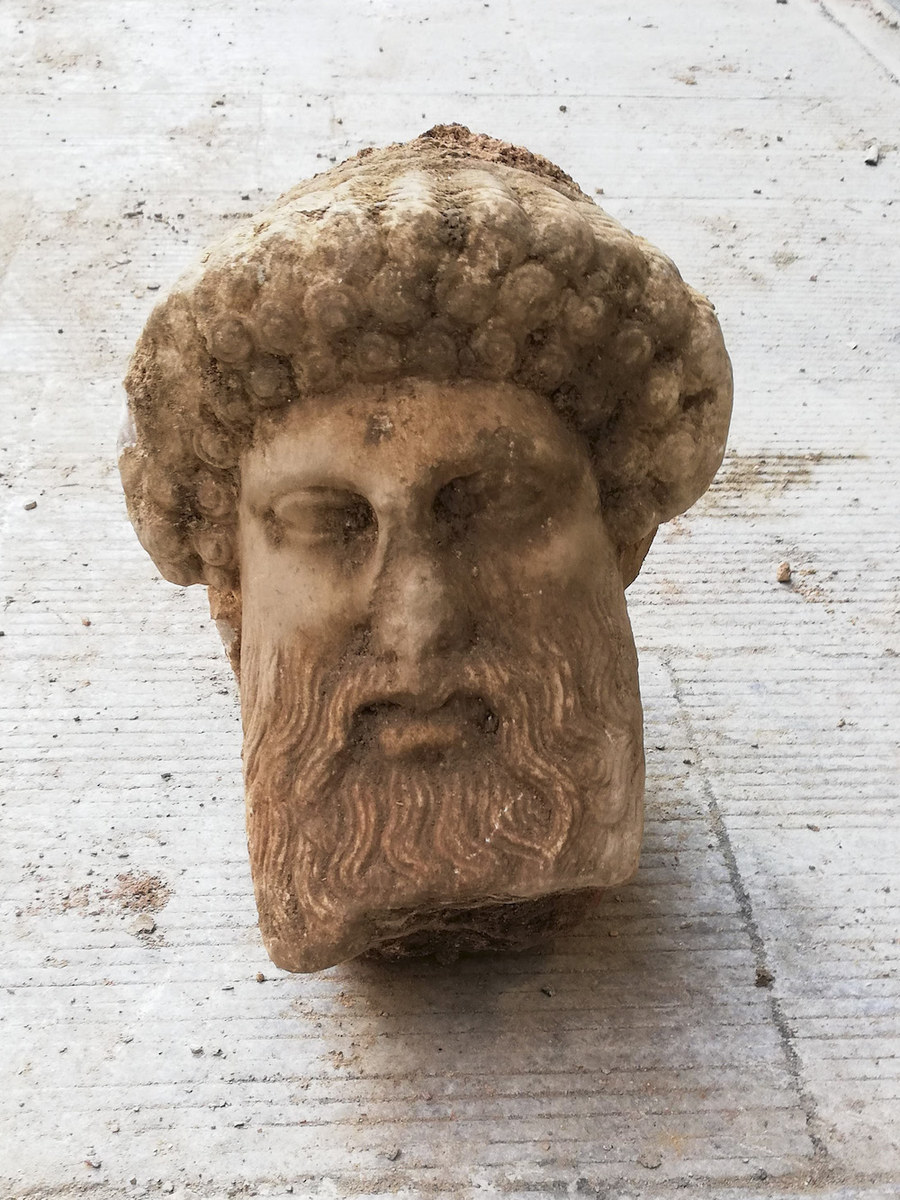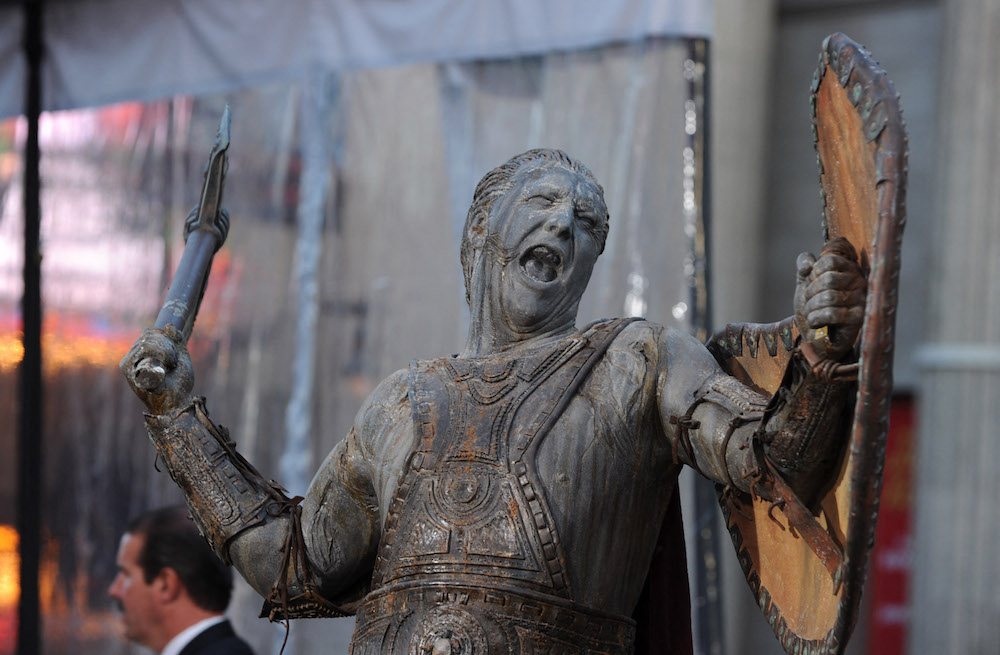LONDON: It is no accident that Classical Greece is commonly referred to as the cradle of Western civilization, and that a seemingly endless stream of fundamental ideas, philosophies, practices, and even words used around the world can ultimately be traced back to the ancient Greeks.
This is especially true of art and entertainment, which owes many of its most enduring archetypes and tropes to Greek mythology – a body of stories and deific characters that document the origin and nature of the world, and which has become so entrenched in popular international culture that, when you know what to look for, it can be difficult to stop.
This inspiration goes much further than just direct adaptations of ancient Greek stories – though there are still plenty of those, from classic adventure films such as “Jason and the Argonauts” to Disney’s adaptation of “Hercules” and modern, CGI-heavy remakes such as “Clash of the Titans.”
Those with a discerning eye can spot elements of Greek mythology permeating modern, ostensibly different franchises such as TV shows “Heroes” and “Battlestar Galactica,” or books like Kamila Shamsie’s “Home Fire” and Peternelle van Arsdale’s “The Cold is in Her Bones.”

Two men look at a tapestry depicting "The School of Athens” during its official presentation at the Greek Parliament on March 22, 2021. (AFP/File Photo)
Even the, relatively speaking, young world of video games is rife with direct retellings (“God of War,” “Assassin’s Creed Odyssey”) and modern re-imaginings (“Horizon: Zero Dawn,” and parts of the “Final Fantasy” series).
But what is it about elements drawn from this ancient culture that have endured for so long, surviving and thriving long enough to spread around the world?
Joseph Hammond, assistant professor in the department of fine arts and art history at the American University of Beirut, said: “Greek myths, like all myths, seem to offer two things. The first is truths about us and the world, and the second is instruction and examples to emulate.
“People retell and represent them because they seem meaningful – because they are retold and represented commonly, and they are legitimized by authorities and by their great age.”
Greek mythology is populated with stories, characters, and behaviors to which we attribute great meaning and authority – by virtue of their universality and their perceived familiarity.

This handout picture released by the Greek Culture Ministry on November 15, 2020, shows the head of an ancient statue of the Greek god Hermes, in Athens, which has been unearthed during excavations for sewage system improvements in central Athens, the ministry of culture said on November 15, 2020. (AFP/Greek Culture Ministry/File Photo)
We experience the same resonance with noble heroes such as Eric Bana’s Hector in “Troy” as we do with Neo from “The Matrix” – one a simple, albeit Hollywoodized, retelling and the other a sprawling epic that draws on multiple mythologies and philosophies.
We enjoy Scar in “The Lion King” as he schemes in his Hades-inspired underworld and get swept up in Voldemort’s obsession with fatalistic prophecies and dynastic mysticism in the “Harry Potter” books. All these stories, very different on the surface, connect with us in strikingly similar ways.
“The circulation of ideas and images in modern, Western Europe was curated by art academies, museums, galleries, growing literature on art and aesthetics, and the patronage of aristocrats and royalty,” Hammond added.
“They had a particular set of truths and moral lessons that they found expedient – included among those ideas is that they had discovered the universal singular standard of truth, beauty, and art, grounded in the art and literature of ancient Greece.
“This belief in their cultural superiority fed other factors leading to imperialism that further spread and entrenched ideas about the universality of ancient Greek motifs into the colonies – including in the Middle East.”

Atmosphere at the premiere of Warner Bros. 'Clash Of The Titans' held at Grauman's Chinese Theatre on March 31, 2010 in Los Angeles, California. (AFP/File Photo)
Not all art and entertainment, in the Middle East and other parts of the world, is universally underpinned by Greek mythology. Hammond pointed out that the degree to which some colonies accepted or rejected these ideas, images, and stories was a topic worthy of discussion in its own right – but the legacy of Greek mythology remained widespread.
After all, it is no great leap to see the story of Sinbad blinding a giant (taken from the Arabic folk tale collection “One Thousand and One Nights”) as bearing all the hallmarks of classic Greek myths and critics have argued that many of Sinbad’s stories resemble tales by seminal Greek poet Homer.
However, it should be noted that a 2003 retelling of Sinbad’s tales by Hollywood producer Jeffrey Katzenberg was criticized for its Hellenistic portrayal of the Arab hero, in which every Arab reference was removed and replaced with something vaguely Greek. The ensuing furor showed that the origins of any great story are always up for debate.
There is also a tendency to confuse universality with simple quality. “Clash of the Titans” and its sequel may be very obvious examples of enduring Greek storytelling, but that does not change the fact that, as critics around the world agreed, it also was not very good.
But there is no disputing that, around the world, art and storytelling owe Greek mythology a great debt – and continue to revel in, and draw upon, its rich and storied legacy.

















